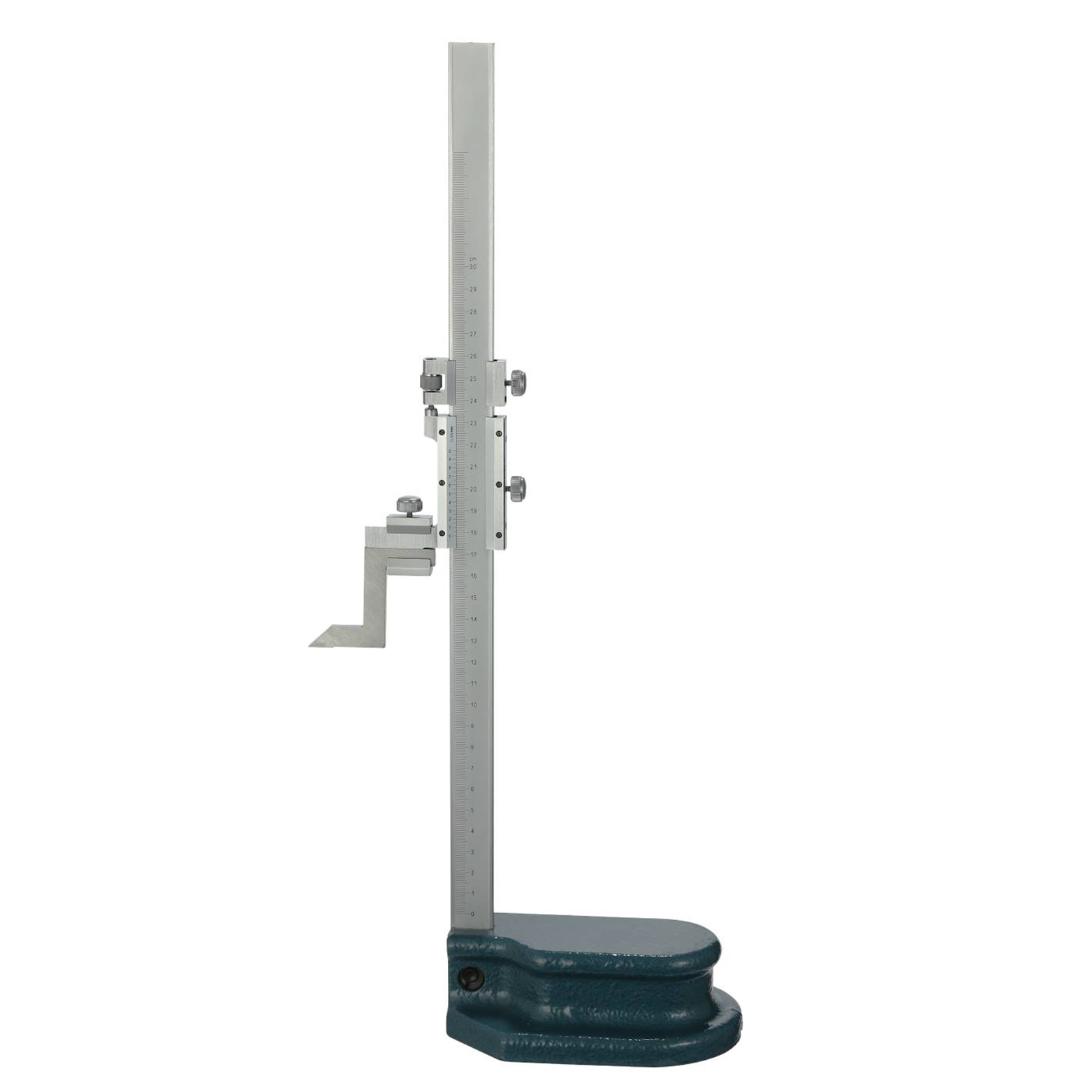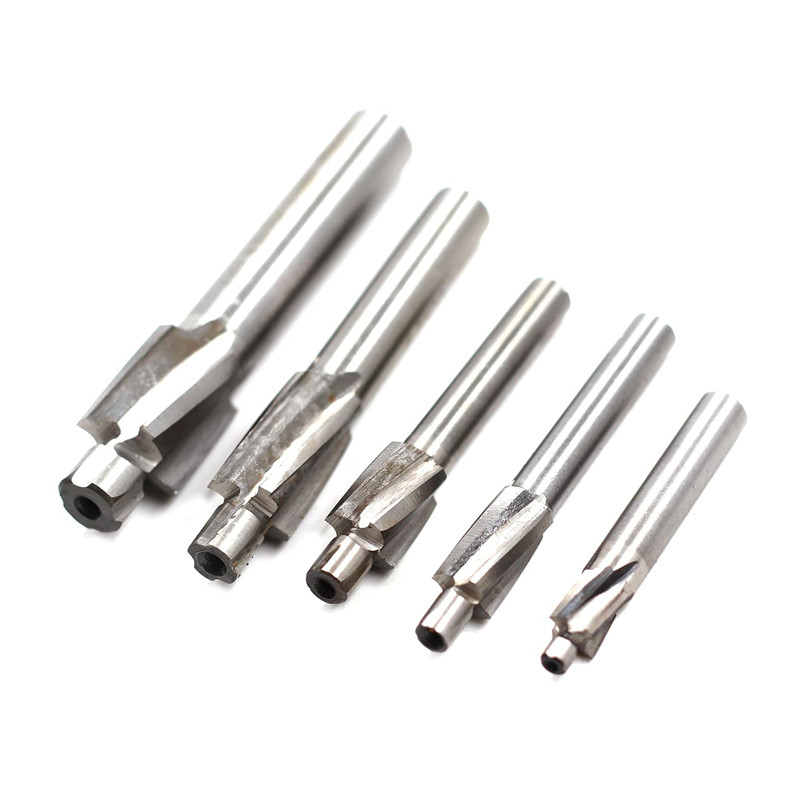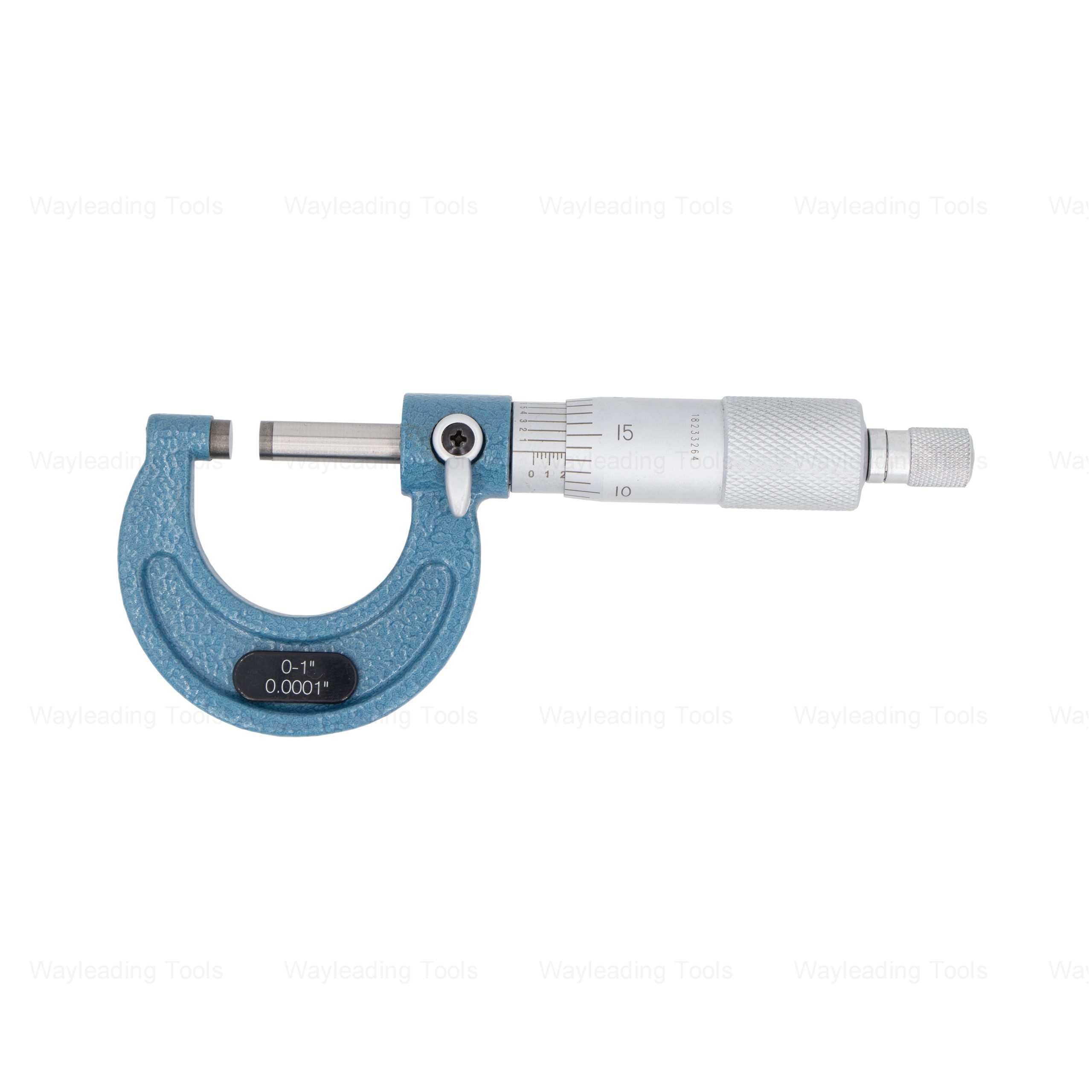End Mills Suppliers
Finding the right end mills suppliers can be challenging, especially with the vast array of options available. This guide simplifies the selection process by outlining key considerations, different types of end mills, factors affecting pricing, and essential questions to ask potential suppliers. Learn how to identify a reliable supplier that meets your specific machining needs, ensuring quality, performance, and cost-effectiveness.
Understanding End Mills: A Foundation for Supplier Selection
Before diving into the world of end mills suppliers, it's crucial to understand what end mills are and their various types. End mills are cutting tools used in milling machines or CNC machines for shaping materials by removing material through a rotary cutting process. They are typically made from high-speed steel (HSS), cobalt, or solid carbide, each offering different levels of hardness, wear resistance, and heat resistance.
Types of End Mills
Choosing the right type of end mill is crucial for achieving optimal results. Here's a breakdown of common types:
- Flat End Mills: General-purpose end mills with a flat cutting edge. Ideal for profiling, slotting, and face milling.
- Ball Nose End Mills: Feature a rounded cutting edge. Commonly used for creating contoured shapes and 3D milling.
- Corner Radius End Mills: Have a slightly rounded corner between the flute and the face. Reduce chipping and improve surface finish.
- Roughing End Mills: Designed for rapid material removal. Feature serrated cutting edges to break up chips and reduce cutting forces.
- Tapered End Mills: Have a conical shape. Used for creating tapered features and draft angles.
Factors to Consider When Choosing End Mills Suppliers
Selecting the right end mills suppliers involves careful consideration of several factors. Here are some key aspects to evaluate:
Quality and Material
The quality of the end mill directly impacts its performance and lifespan. Look for suppliers who offer end mills made from high-quality materials like solid carbide or premium HSS. Ensure the supplier provides information on the material composition and hardness of their tools. Reputable end mills suppliers often have certifications or quality control processes to ensure consistency and reliability.
Range of Products
A comprehensive end mills supplier should offer a wide range of end mills in various sizes, shapes, and materials. This allows you to source all your tooling needs from a single supplier, simplifying procurement and potentially reducing costs. Consider suppliers who offer specialized end mills for specific applications, such as aluminum cutting or hardened steel machining.
Pricing and Value
While price is a factor, it shouldn't be the sole determinant. Focus on the overall value proposition, considering the quality, performance, and longevity of the end mills. Compare prices from different suppliers, but also factor in shipping costs, lead times, and customer support. Request quotes from multiple suppliers to get a clear understanding of the market rates.
Technical Support and Expertise
A reliable end mills supplier should offer technical support to assist you in selecting the right tools for your specific application. They should have knowledgeable staff who can answer your questions about materials, cutting parameters, and tool maintenance. Consider suppliers who offer training programs or online resources to help you optimize your machining processes.
Delivery and Lead Times
Timely delivery is crucial for minimizing downtime and keeping your production on schedule. Inquire about the supplier's delivery times and shipping options. Choose a supplier who can consistently meet your deadlines. Some end mills suppliers offer expedited shipping options for urgent orders.
Essential Questions to Ask Potential End Mills Suppliers
Before committing to a supplier, ask these key questions to ensure they meet your needs:
- What materials are your end mills made from?
- What are the tolerances and surface finishes of your end mills?
- Do you offer custom end mills for specialized applications?
- What is your warranty policy?
- What is your return policy?
- What is your typical lead time for orders?
- Do you offer technical support or training?
- Can you provide references from other customers?
Where to Find End Mills Suppliers
You can find end mills suppliers through various channels:
- Online Marketplaces: Platforms like Alibaba or Global Sources offer a wide selection of suppliers, but careful vetting is required.
- Industrial Distributors: Companies like MSC Industrial Supply and Grainger carry a variety of end mills from different manufacturers.
- Direct from Manufacturers: Purchasing directly from manufacturers like Wayleading Tools or Kennametal can offer better pricing and technical support, especially for large orders.
- Trade Shows: Attending industry trade shows allows you to meet suppliers in person and see their products firsthand.
Pricing Factors for End Mills
The cost of end mills can vary significantly depending on several factors. Understanding these factors will help you make informed purchasing decisions.
- Material: Solid carbide end mills are generally more expensive than HSS end mills.
- Size and Geometry: Larger and more complex end mills tend to cost more.
- Coating: Coated end mills, such as those with TiAlN or DLC coatings, are typically more expensive than uncoated end mills. These coatings enhance wear resistance and performance.
- Quantity: Purchasing in bulk often results in lower per-unit prices.
- Brand: Established brands with a reputation for quality may charge a premium.
End Mill Coatings and Their Benefits
Coatings play a vital role in enhancing the performance and longevity of end mills. Here's a look at some common coatings and their benefits:
- Titanium Nitride (TiN): General-purpose coating that improves wear resistance and tool life.
- Titanium Carbonitride (TiCN): Offers higher hardness and wear resistance than TiN.
- Titanium Aluminum Nitride (TiAlN): Provides excellent heat resistance and is ideal for machining harder materials.
- Diamond-Like Carbon (DLC): Reduces friction and prevents built-up edge, making it suitable for machining non-ferrous materials like aluminum.
Maintaining Your End Mills for Optimal Performance
Proper maintenance is crucial for extending the lifespan and maximizing the performance of your end mills. Here are some tips:
- Proper Storage: Store end mills in a dry, clean environment to prevent corrosion.
- Regular Cleaning: Clean end mills after each use to remove chips and debris.
- Sharpening: Sharpen dull end mills to restore their cutting edge. Consider using a professional sharpening service.
- Using Correct Cutting Parameters: Use the correct cutting speed, feed rate, and depth of cut to prevent excessive wear and breakage.
Table: Comparing Common End Mill Materials
| Material | Hardness | Wear Resistance | Heat Resistance | Cost | Common Applications |
|---|---|---|---|---|---|
| High-Speed Steel (HSS) | Moderate | Moderate | Low | Low | General-purpose machining, softer materials |
| Cobalt Steel | High | High | Moderate | Moderate | Machining harder materials, stainless steel |
| Solid Carbide | Very High | Very High | High | High | High-speed machining, abrasive materials, hardened steels |
Conclusion
Choosing the right end mills suppliers is a critical decision that can significantly impact your machining operations. By considering the factors outlined in this guide and asking the right questions, you can find a supplier who meets your specific needs and helps you achieve optimal results. Remember to prioritize quality, value, and technical support to ensure a successful partnership.
Disclaimer: This article provides general information about end mills suppliers and related topics. Consult with a qualified professional for specific advice tailored to your situation. All data parameters should be verified on the official websites, for example the tool material data, please refer to the tool manufacturer's official website.
Related products
Related products
Best selling products
Best selling products-
 HSS Metric 4 Flute End Mills With Bright Or TiN And TiAlN Coated
HSS Metric 4 Flute End Mills With Bright Or TiN And TiAlN Coated -
 Precision Monoblock Vernier Caliper With Nib Style Jaws Of Metric & Imperial For Industrial
Precision Monoblock Vernier Caliper With Nib Style Jaws Of Metric & Imperial For Industrial -
 Precision V Block Set With High Quality Type
Precision V Block Set With High Quality Type -
 Precision Monoblock Vernier Caliper – Metric & Inch, Industrial Use
Precision Monoblock Vernier Caliper – Metric & Inch, Industrial Use -
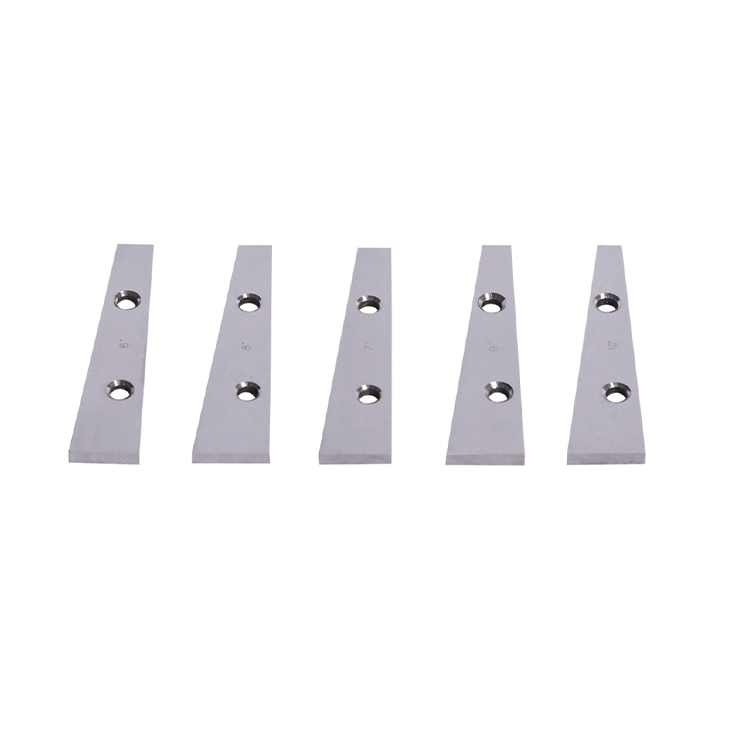 Precision 5pcs & 6pcs Angle Blocks Set With High Quality Type
Precision 5pcs & 6pcs Angle Blocks Set With High Quality Type -
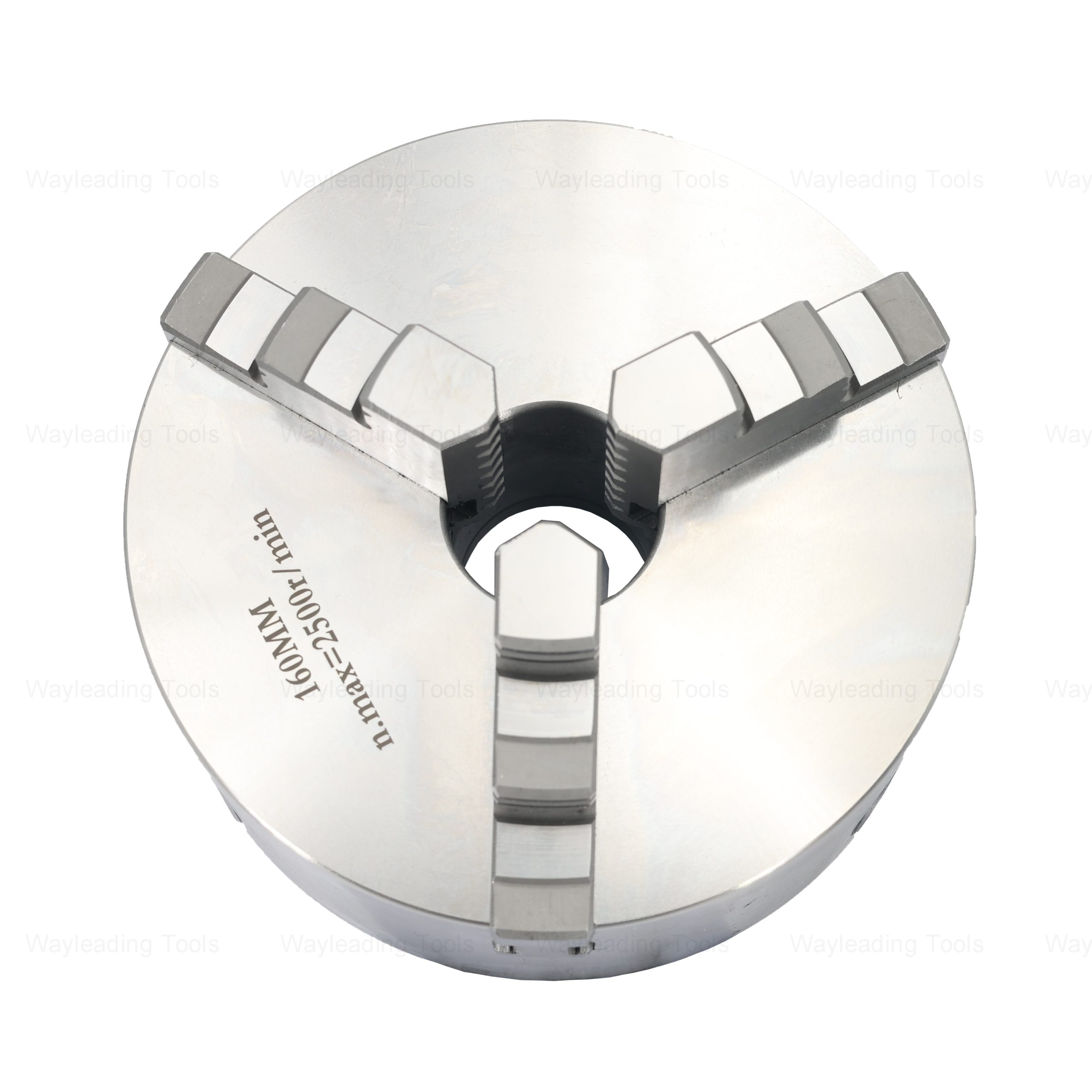 K11 Series 3-Jaw Self-Centering Lathe Chuck – Scroll Type, for Manual Lathes
K11 Series 3-Jaw Self-Centering Lathe Chuck – Scroll Type, for Manual Lathes -
 Stub Milling Machine Arbor With NT, R8 and MT Shank
Stub Milling Machine Arbor With NT, R8 and MT Shank -
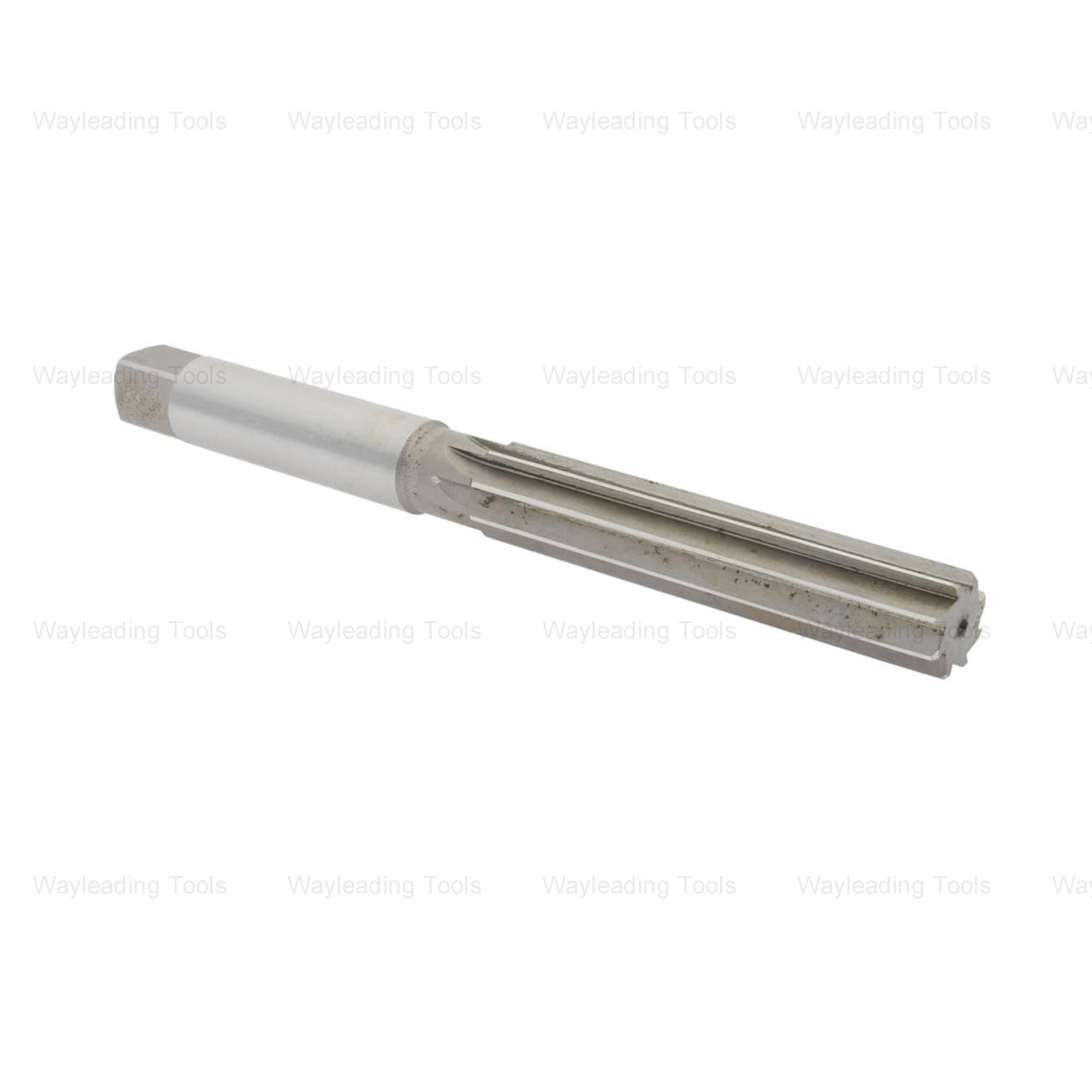 HSS Hand Reamers – Metric & Inch Sizes, Straight or Spiral Flutes
HSS Hand Reamers – Metric & Inch Sizes, Straight or Spiral Flutes -
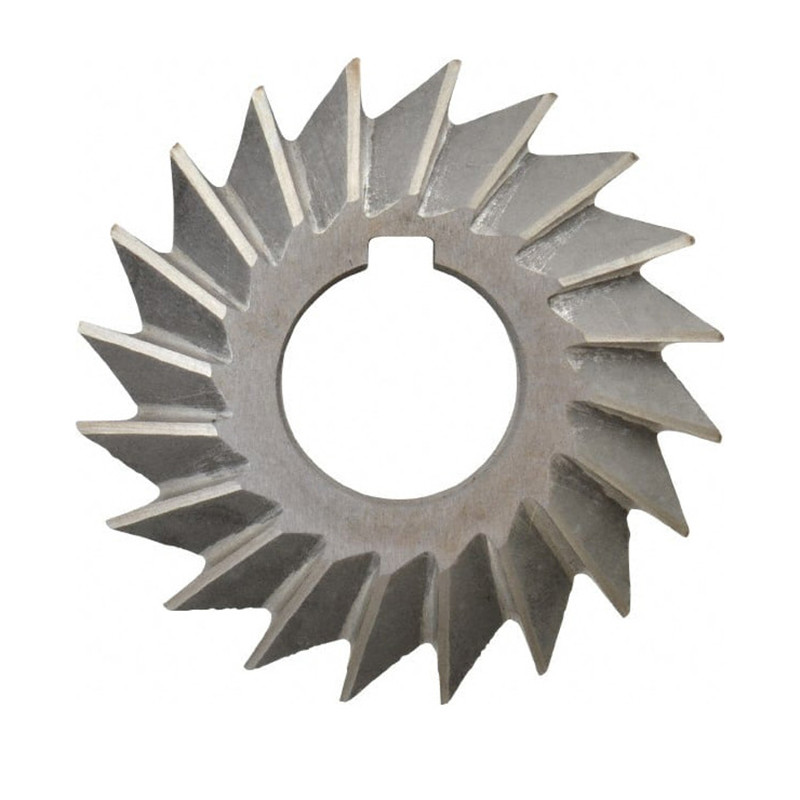 HSS Inch & Metric Single Angle Milling Cutter For Industrial With Bright Or TiN Coated
HSS Inch & Metric Single Angle Milling Cutter For Industrial With Bright Or TiN Coated -
 Parting & Grooving Tool Set With SLTB Blcok, NCIH Blades, GTN Inserts
Parting & Grooving Tool Set With SLTB Blcok, NCIH Blades, GTN Inserts -
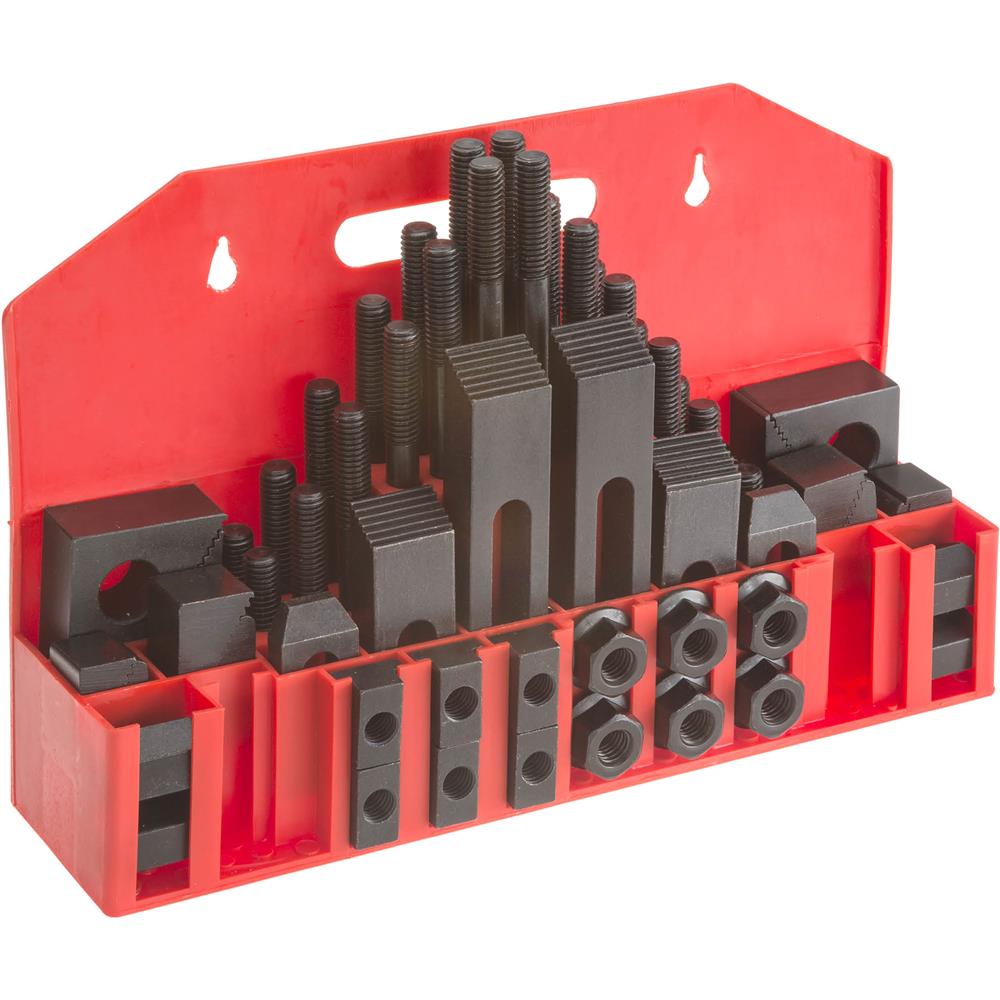 58pcs Clamping Kit With Metric & Inch Size
58pcs Clamping Kit With Metric & Inch Size -
 HSS DP Involute Gear Cutters With PA20 And PA14-1/2
HSS DP Involute Gear Cutters With PA20 And PA14-1/2

